- Home
- Anne Schraff
No Fear Page 9
No Fear Read online
Page 9
“She kinda has done that,” Ernesto answered, “and he always says the boys would have to apologize first. They’d have to ask forgiveness for what they did, especially Orlando. He hit his father, but he was protecting his mother. And he doesn’t feel like he should apologize for that. I sorta don’t either,”
The court lights were on, and some boys were already playing basketball when they arrived. As Ernesto and his father drew closer, his father suddenly remarked, “You’ve become very fond of Naomi, haven’t you, Ernie?”
“Yeah … yeah, Dad,” Ernesto nodded yes. “I liked her from the beginning and the more I see of her … you know, the closer I feel. She’s pretty wonderful.”
“Mi hijo,” Dad said softly. “Something has changed. You’re closer to her now than you’ve ever been. I can see it in your eyes, I can hear it in your voice when you speak of her. I know for a while she found it hard to break up with Clay Aguirre. But now I am feeling that she has and that you two have grown very close. Is that right?”
“Yeah, Dad,” Ernesto admitted after taking a deep breath.
“Bear in mind, Ernie,” Dad advised, “that if there is a future for the two of you together, the family will be in your life as well. Felix Martinez will always be a part of your life. You told me once that you felt contempt for the man, but that would have to change. You could not feel that way if the families came together. Your mother’s parents had great dreams for her finishing college and having a fine career. Meeting me changed all that, and they were not happy with that. But they always respected me, and I always respected them. I think they are very good people, and I am blessed that my children have grandparents as fine as Alfredo and Eva Vasquez. Remember, Ernie, Naomi doesn’t come without baggage. She will always love her father, and their family troubles will become your troubles.”
Ernesto didn’t say anything. All he could think about was that moment with Naomi after the Chavez Cougars won that track meet. She told him she was falling in love with him. She gave him a kiss that almost sent him into outer space. That was all that mattered now.
Luis Sandoval glanced at the four boys shooting baskets. “I don’t recognize them,” he said, as nodded in their direction.
“The one—the guy with the shaved head,” Ernesto noted. “I saw him with another guy. He’s the real bad dude who goes by the nickname Condor.” His father nodded, finally having a face to go with the name he knew.
A cold chill went through Ernesto. He thought about the house on Starling and the half starved, maimed pit bulls. This guy seemed to be part of that action. On his thick muscled arms were tattoos of dogs. One of them looked like a rottweiler. Ernesto didn’t know how bad this dude was, but he surely hung with an evil creep. Condor was about twenty, but this guy looked much younger, maybe not much more than fifteen or sixteen.
“Hey boys,” Luis Sandoval called out, “you boys hot tonight?” Ernesto’s father was wearing a Charger shirt and a black baseball cap. He looked a lot younger than he was. He could have passed for twenty-something.
“What’s it to you, man,” the rottweiler tattoo asked. He had a belligerent voice.
“I played basketball when I was a kid,” Dad replied.
One of the other boys was a kid Luis Sandoval recognized as a sophomore at Chavez a few months ago. He declared, “Hey, you’re that teacher.”
“You’re a teacher?” the rottweiler tattoo echoed the kid.
“Yeah, I teach history at Chavez,” Luis Sandoval answered. “How many of you here are dropouts?”
The rottweiler tattoo and another boy raised their hands. The rottweiler tattoo spoke. “I didn’t exactly drop out. I was like kicked out. But I did a little kicking myself before that went down.” The four boys laughed at that.
“What’s your name?” Ernesto’s father asked.
“Tony,” the boy responded. “I got suspended for fighting some creeps who were gonna take me apart and put me back together a whole different way. Like with my head comin’ out my pants leg.”
The boys laughed again.
“I’m Luis Sandoval,” Dad announced. “This is my son, Ernie.” Dad held out his hand to Tony, but the kid with the rottweiler tattoo declined it. Dad ignored the snub. “There’s a lot about the school system that stinks. If some bullies jump a guy and he tries to defend himself, he gets busted along with the bullies. I don’t agree with that Tony. If that incident happened to you as you say, maybe I can do something about it. Why should you lose your whole future just because some jackals came after you and you defended yourself.”
Another boy chimed in. “He’s jiving you, Tony. They’re all the same. No teacher is gonna take the side of a kid who got busted for fighting.”
“Yeah,” another kid added. “He’s the man.”
“How old are you, Tony?” Luis Sandoval asked.
“Old enough to know a phony when I see one,” Tony snarled. He was getting more hostile as his friends encouraged him. Teachers and cops were the enemy.
“How about I bet you I can make three free throws in the basket, and then you’ll talk to me, Tony,” Ernesto’s father proposed.
“You can’t do that,” Tony protested. He folded his arms, and the rottweilers looked even tougher.
“He’s jiving you, Tony,” the other boy said again.
“Deal?” Luis Sandoval asked. Ernesto knew his father had been a great basketball player. In college, he had led his team in scoring. Most of his teammates were African American, and he was an oddity. He was the Mexican American kid who could shoot like Michael and Shaq. Now, twenty years later, Ernesto’s father got together every year with his old teammates to eat hot dogs and pizza and to have a few one-on-one games.
“Waddya want to talk about?” Tony asked. “We got nothin’ to talk about.”
Luis Sandoval went to the fifteen-foot mark and shot his first ball into the rim.
“Big deal,” Tony commented. “Beginner’s luck.”
Ernesto’s father got his second free throw in and then the third. The four boys were dead silent.
“Okay, so you can play basketball,” Tony granted. “But we got nothin’ to talk about.”
“You afraid to talk to me?” Ernesto’s father asked.
“I ain’t afraid of nothin’,” Tony growled.
“Good, let’s talk,” Luis Sandoval suggested. He began walking to a stone bench nearby. The other three boys continued shooting baskets, but Tony stood there, a few feet from the bench where Luis sat. Then he walked a little closer.
“I’m tellin’ you,” Tony objected, “we got nothin’ to talk about. I was busted. I’m done.”
“How old are you, Tony?” Luis asked again.
Tony nodded toward Ernesto. “Same as him. I’m sixteen.”
“Sixteen. I figured you were a junior,” Dad replied. “You got a job, Tony?”
The boy laughed sharply. “Who’s gonna hire me?”
“My boy there, Ernie, he’s got a job at the pizzeria. You’ve worked at that pizzeria for about a month and a half, huh, Ernie?” Dad said.
“Yeah,” Ernesto replied. “I make chump change, but it’s better than nothing.”
The boys who were still playing basketball stopped. They were staring at the boy standing by the bench where the teacher sat.
“I tried to get a job at a million places, the burger place, the taco shop,” Tony revealed. “My parents were really ticked at me for getting busted. They said at least get a job, but nobody wanted nothin’ to do with me.”
“Because you’re a dropout, son,” Mr. Sandoval advised.
“I’m not your son,” the boy snapped.
“Tony,” Dad continued, ignoring the remark, “when a sixteen-year-old kid asks for a job, they want proof you’re still in school. That tells them you’re responsible. See, by being a dropout, you got a bad mark on yourself.”
“So what? My homies take care of me,” Tony argued.
“The bullies who stomped on you—they still at Chavez?” Ern
esto’s father asked.
Tony shrugged. “I guess.”
“They straightened it out and got back in school,” Luis Sandoval explained. “So now they’re gonna graduate and get good jobs. It was their fault what happened, but you’ve been thrown under the bus. That’s not right, Tony.”
“It don’t matter,” Tony countered. “I’m doin’ okay. There’s a guy over on Starling gonna get me work.”
Luis Sandoval and his son exchanged looks. “Guy named Condor?” Ernesto’s father asked.
“So what if it is,” Tony sneered.
“Tony, listen to me,” the teacher demanded in a suddenly impassioned voice. “You’re breaking your parents’ hearts, and you know it.”
“Ahhh, they don’t care,” Tony said.
“I bet your mama cries herself to sleep at night, worrying about her muchacho,” Dad suggested. “The homies don’t care about you. Condor just wants to use kids for his dirty deals. But a mama, she always cares. She can’t help herself. She took care of you as an infante. That’s what she remembers. That’s what she never forgets!”
“What’re you bothering me for, man?” Tony demanded in a suddenly distracted voice. “You crazy or something?” Tony looked at Ernesto. “What’s with him? What’s with your old man? Is he loco?”
“I want you back in school, Tony,” Luis Sandoval explained. “I want you to be somebody. The kids in the barrio, they’re the treasures here. That’s what we’re all about. The kids. I don’t want to lose you, Tony. I don’t want to lose any of you.”
“You are loco, man,” Tony declared. “I’m no treasure.”
“Yeah, you are, Tony.” Dad pulled out a card with his cell phone number on it. “You give this to your mama. Tell her to call me anytime. We’ll work something out so you can get back in school. I promise you I’ll help you, Tony.”
Tony took the card. He could see the other boys were watching him. So he threw it down into the grass and yelled, “I don’t need nothin’ from you man!”
“Come on, Ernie,” Dad said, “time to go home.” He didn’t say another word to Tony.
When they were several yards away, in the darkness, away from the lights, Ernesto spoke. “You tried, Dad. Most people don’t even try. I’m proud of you.”
Father and son stopped in the darkness. There was a crescent moon in the sky, and
Venus was creeping closer. Luis Sandoval watched the boys as their basketball game broke up. They drifted away, one by one, until Tony was left alone. Tony waited until they were all out of sight. Then he walked over to the stone bench where he had cast the teacher’s card into the grass. He stooped and picked it up. He stuffed it into his pocket, and then he ran after his friends, who were down the street already.
“Dad!” Ernesto gasped. “He took the card with your phone number!”
Luis Sandoval smiled. “It’s what I said about his mama that got to him, mi hijo. A Mexican boy cannot forget his mama. No matter how far from his home he is, he cannot forget that she loves him.”
Ernesto and his father walked the short distance home. A few people on the street were getting out of the movie theater, coming from work, or going to work. A few kids were hanging out in front of the deli.
“You think he’ll give the card to his mom?” Ernesto asked.
“Yeah,” Dad nodded yes. “Probably not tonight. Maybe not even tomorrow. But soon.”
“Do you think she’ll call?” Ernesto asked.
“Yeah,” Dad affirmed. “I wrote on the card in Spanish that I want to help the boy get back in school. Lotta these parents don’t speak or understand much English. She’ll call me. I know she will. They want what’s best for their kids. They know it’s school and a decent job, or it’s places like Starling Street and friends like Condor.”
The next day, Thursday, Luis Sandoval was very late coming home from Cesar Chavez High School. Ernesto watched Abuela and his mother putting dinner on the table, and they both looked worried.
“He usually calls when he’s going to be late,” Maria Sandoval commented. Worry underscored her eyes. Since that night when the chunk of cement came through the front window of the Sandoval house, Mrs. Sandoval was much more concerned when Luis was late. Whoever had thrown that cement had meant to do harm. The thrower was probably angry about the teacher’s activities reaching out to kids on the street and possibly uncovering drug dealing. Luis Sandoval had not curbed his activities, and the criminals who had done it had not been arrested yet. So Maria Sandoval worried.
“Luis must have been delayed at school. He has so much on his mind,” Abuela said. “They’re testing at the school now to see how well the eleventh grade is doing. Luis told me about that. He is maybe so busy with that that he forgot to call and say he would be late, Maria.” Abuela was trying to comfort her daughter-in-law, but she was worried too. She almost dropped the bowl of salsa she was bringing to the table. She wouldn’t have done that if she wasn’t nervous.
“Where’s Papa?” Juanita asked, her little face now dominated by her big, dark eyes. “Why isn’t Papa home? He’s always home now.”
“Oh, he’s just doing something at school,” Katalina answered. “He’s a very important man at Chavez High School. Ever since that pretty mural was unveiled, newspeople have been talking to him and stuff. Everybody knows that Papa is the most important man at that school, even more important than Ms. Sanchez, the principal. She wouldn’t know what to do if Papa wasn’t there to help her all the time. Everybody knows that.” Katalina tossed her head in her self-important way.
Ernesto knew his father’s routine. He always stayed in his classroom for about forty-five minutes to an hour after his last class ended. He wanted to be available in case a student needed to talk to him, about schoolwork or anything else. As much as Luis Sandoval loved teaching history, he loved even more his interaction with students, being able to help them through tough spots.
By the time Ernesto’s father usually left the campus, it was pretty deserted. Only one other teacher, José Cabral, the math teacher, and Ms. Hunt would be there an hour after the last bell. Their three cars would be in the parking lot, and they’d hail each other as they finally left.
“Probably somebody came in to talk to him,” Abuela suggested. “You know how he is about that. He’s always willing to listen to a student. He has such a good heart.”
Abuela chopped the salad. She knew her son walked down dangerous streets and challenged the gangbangers. She was proud of him. He didn’t let fear cripple his life. But she was worried too, a little more with each passing minute.
“Mama!” Juanita yelled. “A car is coming in our driveway, and it’s not ours!” Ernesto saw his mother’s eyes widen. They all rushed to the window, almost afraid to see who had come.
CHAPTER TEN
It’s Daddy!” Juanita screamed. “Some lady brought him home!”
Maria Sandoval looked out the window, smiling with relief that washed over her like soothing warm water. “It’s Ms. Sanchez, the principal of his school, honey.”
Dad waved to Ms. Sanchez as she backed out the driveway. He looked very tired when he came through the front door with his briefcase, but he looked happy too “What a day,” he sighed. “It’s like the start of that novel by Charles Dickens—A Tale of Two Cities. It was the worst of days, it was the best of days.” He walked over to his easy chair and collapsed into it while Abuela got his favorite drink, hot chocolate.
“What happened?” Mom asked. “Where’s our minivan?”
“Water pump problem,” Dad responded. “I was going to walk home, but Julie Sanchez took pity on me and drove me. Pepe at the garage picked it up. He’s fixing it and bringing it over tonight.”
When Luis Sandoval sat down to dinner with his family, he told his story. “At lunchtime I got a call from SeñoraValverde. That’s the mother of the boy, Tony, that Ernesto and I met the other night. She spoke fairly good English, and she was distraught. Very emotional. Very frightened. She told me her son h
ad given her the card for offering to help him get back in school. She wanted to know if it was something real or a joke. I assured her that, if she was Tony’s mother, we needed to talk. Fortunately, I had a free period after lunch.”
Dad paused while he munched a forkful of his dinner. “So I went over there. The old minivan’s water pump hadn’t burst, yet but it was dripping. Qué suerte! Señor Valverde was home too. It seems they are both nurses at the hospital. They work long shifts and they are struggling to raise four children. It turns out Señor Valverde had served in the same sector of Iraq I did, and he lost an eye to an IED. The parents told me that Tony was a good boy who was mercilessly taunted by a little group of boys. He was a B plus student.”
“What happened, Dad?” Ernesto asked.
“Tony’s a bit shorter than most juniors,” Dad explained between chews, “and these bullies focused on this. They called him demeaning names. They just wouldn’t let up. They scrawled stuff on his locker. In the lunchroom they overturned his tray and splashed spaghetti all over him. The more they did, the bolder they got until the poor kid snapped.”
“Didn’t the boy get help from a teacher or the principal?” Mom demanded. “This is despicable. It shouldn’t be happening.”
Ernesto looked sympathetically at his mother. She was young yet, not even forty. So her high school days were not that far back. Yet she didn’t understand how it was, especially for boys. Girls froze out their enemies and played mean little mind games, but boys meant business. You got bullies on your case, and they were like a pack of wolves sensing vulnerable prey. They didn’t quit until they had brought you down. And you didn’t rat them out even then, because then the whole class would be against you.
“He couldn’t talk about it, Mom,” Ernesto said to her. “You go crying to a teacher, and you’re road kill.”
“Well,” Luis Sandoval went on, “Tony struck back. When these four creeps tore up the back of his brand-new Chargers jacket, a gift from his dad on his sixteenth birthday, he’d had enough. It turns out Tony Valverde wasn’t the wimp they thought he was. He banged up these bullies and had them backed up against the wall. The irony is, he came out looking like the bad guy. The creeps got off with detention, and Tony got suspended. He was fighting on campus, and Ms. Sanchez threw the book at the kid.”

 Unbroken
Unbroken Wildflower
Wildflower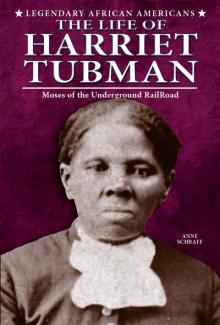 The Life of Harriet Tubman
The Life of Harriet Tubman Like a Broken Doll
Like a Broken Doll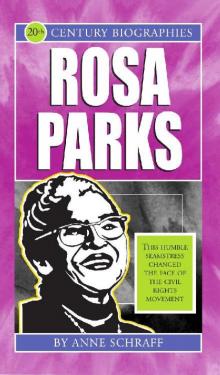 Rosa Parks
Rosa Parks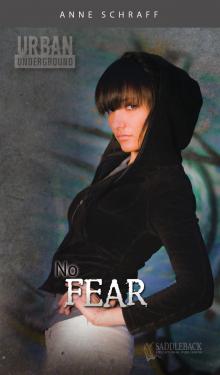 No Fear
No Fear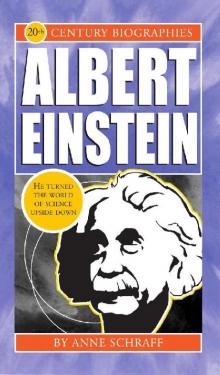 Albert Einstien
Albert Einstien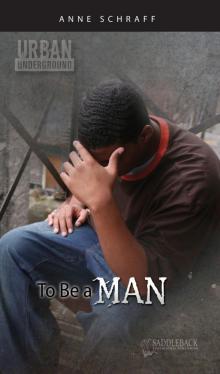 To Be a Man
To Be a Man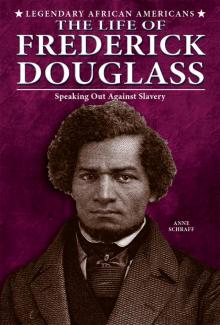 The Life of Frederick Douglass
The Life of Frederick Douglass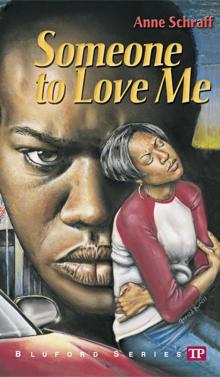 Someone to Love Me
Someone to Love Me A Matter of Trust
A Matter of Trust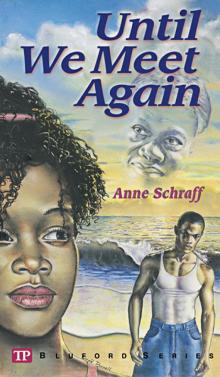 Until We Meet Again
Until We Meet Again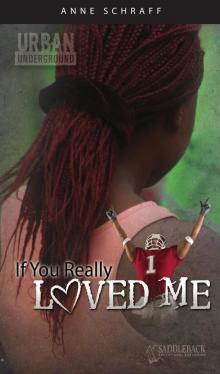 If You Really Loved Me
If You Really Loved Me